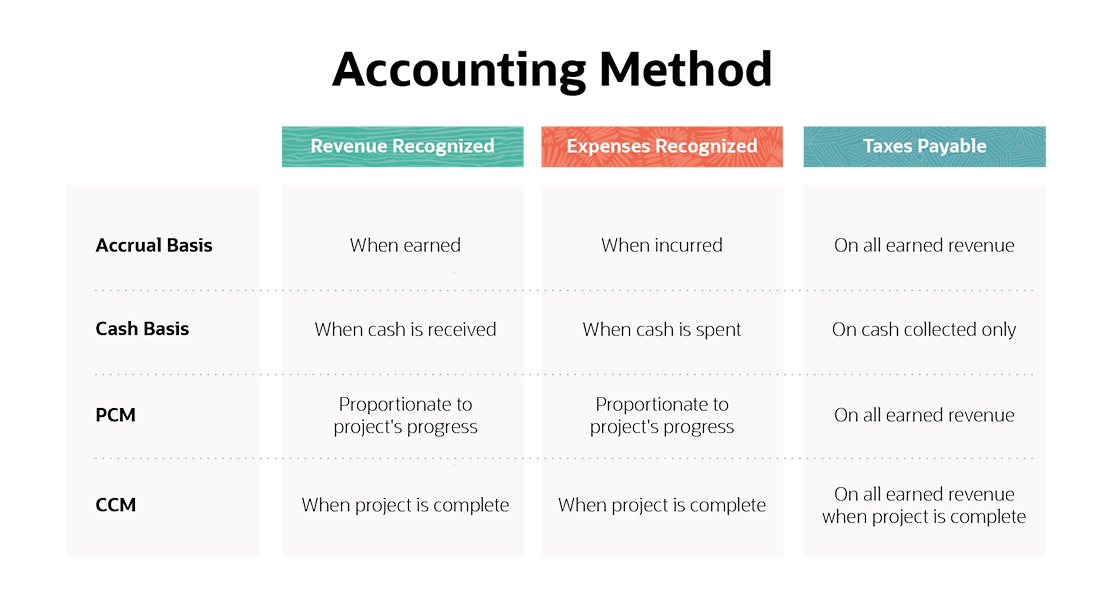Understanding the Value of Construction Accounting for Successful Project Administration

Function of Building Audit
Building accounting functions as the foundation of monetary management in the construction sector, ensuring that jobs are finished within budget and economic purposes are satisfied. construction accounting. This specialized accounting approach addresses the one-of-a-kind challenges encountered in building and construction jobs, consisting of differing project periods, fluctuating expenses, and several stakeholders
Among the primary duties of building and construction bookkeeping is to provide accurate expense estimation and monitoring throughout the task lifecycle. This helps with educated decision-making, allowing project supervisors to adjust timelines and resources effectively. Additionally, building and construction accountancy boosts cash money circulation monitoring by checking accounts receivable and payable, therefore guaranteeing that funds are available for timely repayments to subcontractors and providers.
It gears up project managers with the required economic information to prepare comprehensive financial statements, which are important for audits and economic evaluations. Eventually, the duty of construction accounting expands past simple monetary monitoring; it is important to critical planning and operational efficiency, driving the success of building jobs in an affordable landscape.
Trick Components of Building Audit

Budgeting establishes an economic structure that guides project execution, permitting supervisors to assign resources effectively and anticipate prospective economic obstacles. Precise price tracking is vital for tracking costs in real-time, assisting to determine variations between forecasted and real expenses. This makes it possible for prompt adjustments to maintain the task on budget plan.
Furthermore, financial reporting gives stakeholders with a clear image of the task's monetary health and wellness. Normal records, such as profit and loss declarations and capital analyses, promote informed decision-making and improve openness amongst all celebrations entailed.
Furthermore, compliance with market regulations and audit standards is critical. This makes certain that monetary methods are not just effective yet also legal, guarding the organization against legal repercussions. By integrating these crucial elements, building accounting promotes an organized technique to managing financial sources, ultimately adding to the effective completion of building projects.
Advantages for Project Supervisors
Leveraging reliable building audit practices gives task managers with a wide variety of advantages that enhance both operational efficiency and economic oversight. One substantial benefit is improved budget monitoring. Accurate monitoring of costs and revenues allows project supervisors to check monetary performance in actual time, making sure jobs stay within budget and promoting prompt modifications when required.
Furthermore, building audit improves cash flow monitoring, enabling project supervisors to enhance and anticipate monetary demands source allowance. By understanding cash money inflows and outflows, they can better handle settlements to subcontractors, providers, and workers, consequently staying clear of pricey delays.
Furthermore, durable bookkeeping systems provide thorough reporting abilities. Task supervisors can generate reports that supply insights into website link project productivity, price variances, and resource application. This data-driven technique fosters notified decision-making, enabling supervisors to identify prospective issues proactively and carry out corrective actions.
Last but not least, adherence to building bookkeeping requirements makes sure conformity with regulatory and lawful needs, reducing the risk of disagreements or fines. Generally, efficient building accountancy outfits task managers with the devices required to drive project success, enhance stakeholder confidence, and promote lasting business development.
Common Challenges in Building And Construction Bookkeeping
Lots of job supervisors run into substantial obstacles in building and construction audit that can prevent job success. Among the key obstacles is the complexity of tracking numerous job websites, each with distinct budget plans, timelines, and resource allowances. This needs visit their website careful interest to detail, which can be frustrating without a durable bookkeeping system in location.
Furthermore, rising and fall product costs and labor rates can make complex budget administration, making accurate forecasting hard. Project supervisors usually battle to reconcile these costs with actual expenditures, leading to prospective economic inconsistencies.
Additionally, building and construction bookkeeping entails compliance with different guidelines, consisting of tax obligation commitments and labor laws. Navigating these regulations can be overwhelming, especially for managers that might not have a strong accounting background.
An additional substantial difficulty is managing cash money circulation, which is important in the building industry. Delays in invoicing, settlements from clients, or unexpected task modifications can create capital scarcities, threatening the project's progression.
Finally, effective communication between project managers, accountants, and area groups is crucial. Misconceptions can lead to inaccurate economic reporting, even more making complex project management initiatives. Resolving these challenges proactively is vital for successful building and construction accounting.

Finest Practices for Effective Accounting
While navigating the complexities of construction accountancy can be complicated, taking on best methods can considerably enhance financial administration and task success. One essential technique is keeping exact and prompt documents. Executing robust accountancy software application customized to building tasks can streamline information entrance, invoicing, and reporting, conserving and reducing mistakes time.
Additionally, developing a clear budget plan and routine tracking versus this spending plan are important. Employing a system of periodic financial testimonials permits project supervisors to recognize variances early, helping with prompt decision-making. It is also essential to different project expenses right into indirect and direct categories, allowing more clear insights right into earnings.
Another best practice involves fostering open interaction among all stakeholders. Normal updates and collaborative discussions regarding financial condition can guarantee every person is straightened and informed. Training staff in construction-specific bookkeeping concepts further improves competency and accuracy.
Last but not least, making certain compliance with appropriate accountancy criteria and policies is non-negotiable. Normal audits and inner testimonials contribute to transparency and responsibility, constructing count on with customers and stakeholders. By focusing on these finest techniques, building firms can maximize their accounting processes, inevitably driving task success and economic security.
Conclusion
Finally, building and construction accounting plays a crucial role in guaranteeing successful project monitoring by facilitating exact financial oversight and enhancing decision-making. By integrating crucial components such as price estimation, money circulation administration, and conformity, project managers can navigate common difficulties and take advantage of ideal methods for effective bookkeeping. Eventually, a durable building accounting structure not just safeguards budget integrity however likewise contributes to the general economic health of construction jobs, cultivating sustainable success within the industry.
By integrating these crucial components, building bookkeeping cultivates an organized method to taking care of economic sources, ultimately adding to the effective conclusion of building projects.
Accurate monitoring of profits and costs allows task a knockout post supervisors to keep an eye on economic performance in real time, making certain tasks continue to be within spending plan and helping with prompt adjustments when necessary.
Task managers can produce reports that supply insights into task productivity, expense differences, and resource utilization.Many task supervisors run into considerable difficulties in construction audit that can impede task success. construction accounting. Eventually, a durable building and construction audit framework not just safeguards budget plan honesty but likewise contributes to the overall monetary wellness of building and construction tasks, promoting lasting success within the industry
Comments on “How Construction Accounting Can Help You Stay on Track with Your Budget”